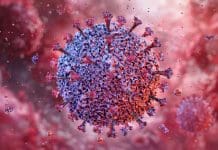Scientists have found that lupus symptoms improve with age as immune system genes become less active, offering new insight into age-related treatment strategies
Recent research has revealed that individuals who have lupus often experience a surprising improvement in their symptoms as they age. This new understanding stems from a study conducted by scientists at the University of California, San Francisco (UCSF), which highlights how the immune system’s gene activity diminishes over time, particularly focusing on genes associated with antiviral responses. This finding not only sheds light on the nature of lupus as a chronic autoimmune disease but also introduces potential avenues for developing age-specific treatment strategies that could enhance the quality of life for lupus patients.
Lupus is known for its lifelong presence in patients, but many healthcare professionals have observed a trend where the severity of the disease tends to decrease in older populations. Dr. Sarah Patterson, an assistant professor of medicine in the division of rheumatology at UCSF, notes, “I monitor my younger lupus patients in their 20s, 30s, and 40s closely every few months for signs of severe disease. However, I often see my older patients just once a year to check in.” This reflects a critical observation: if patients can navigate through the more dangerous decades of the disease, many witness significant improvements in their symptoms and overall health.
The findings, which are of significant importance in the field of lupus research, are published in the prestigious journal Science Translational Medicine.
How important is age in lupus?
In most people, ageing tends to bring more inflammation and a higher risk of chronic diseases. But in people with lupus, the opposite often happens – older age is linked to lower disease activity, suggesting a unique and intriguing connection between ageing and the immune system in lupus.
The researchers from the University of California, San Francisco analysed blood samples from patients across all ages, and found that ageing turns down the activity of specific immune genes in people with lupus, resulting in fewer interferons and other inflammatory proteins in the body.
Using a multiomic approach, the researchers compared ageing-related changes in the peripheral blood immune profiles of 287 patients with SLE and 928 healthy controls. They found that in healthy adults, inflammation-related genes and proteins rose slowly over the years, a process named “inflammaging”. However, in patients with lupus, the expression of these genes and proteins was abnormally high in mid-life but decreased over time.
“Inflammaging seemed to be reversed in the lupus patients,” said Chaz Langelier, MD, PhD, associate professor of medicine at UCSF and senior author of the paper. “But it wasn’t fully reversed. The lupus patients still had a greater level of inflammatory signalling compared to healthy adults in older age.”
The reversal is what Patterson had witnessed in her patients, indicating a return to normal levels in older age.
Tailored treatment to address individual needs
Looking ahead, the research team aims to explore how age influences the efficacy of drugs designed to inhibit interferon activity in lupus patients. They also express interest in applying their multiomic approach to investigate other inflammation-related conditions, such as rheumatoid arthritis, chronic obstructive pulmonary disease (COPD), and atherosclerosis. By doing so, they hope to develop tailored treatment strategies that can address the unique needs of patients based on their age, thereby improving management options and overall quality of life for those dealing with chronic inflammatory diseases.








